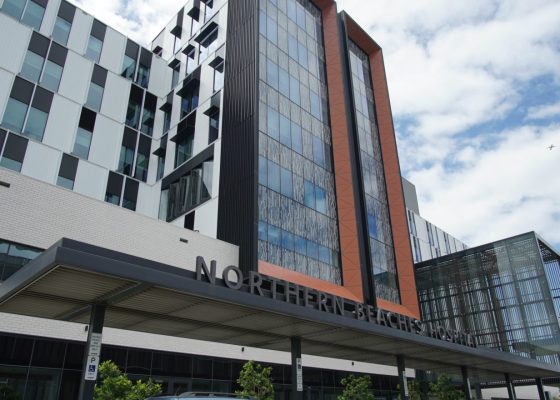The eternal bickering between hospital operators and private health funds shows no sign of abating. What chance does the sector have? Mark Butler may yet step in.
Time is ticking on the clock that measures federal health minister Mark Butler’s tolerance levels when it comes to the eternal bickering between private health insurance companies and the hospitals that rely on their money.
In the wake of private hospital operator Healthscope’s collapse into receivership yesterday, Mr Butler this morning reminded private health funds that time is running out for them to lift their contribution to keeping the private sector viable.
“I said to the private health insurers who essentially fund private hospitals, that I expect them to pay more of their income to hospitals,” Mr Butler said on ABC Sydney this morning.
“We’ve seen a substantial drop in the share of the revenue that private health insurers earn actually go to hospitals that deliver the care.
“More of the money is going to private health insurer profits, and in some cases management expenses.”
While Mr Butler has been very direct about not bailing out Healthscope, the contribution of insurers is a sector-wide issue.
“I have been very explicit about that. I’ve given them a particular timeframe. If they haven’t resolved that over coming weeks, I’ve said that I reserve the right to act.”
In another interview, this time with ABC Perth, Mr Butler went further.
“We’re the government. We have the ability to legislate here. We have the ability to make regulations that govern the operation of private hospitals,” he said.
“At the end of the day, these are private operations, but they deliver a public good. Private insurers and private hospitals also have significant taxpayer support to the tune of about $8 billion every year through the private health insurance rebate that’s paid by taxpayers through the Australian government, so we do have skin in the game here.
“I continue to bring insurers and hospitals and the doctors and the nurses and other players in the system together to find a better way forward than we currently have.”
Yesterday, Healthscope CEO Tino La Spina accused the insurers of “squirrelling away billions of dollars”.
Today, Private Healthcare Australia, the peak body representing the majority of health funds, came out fighting in response.
“Health funds have not ‘squirrelled away’ their members’ money and do not owe hospitals anything,” said PHA CEO Dr Rachel David.
“When the covid pandemic hit, health funds vowed to return savings from lower use of health insurance to consumers, and that process is nearly complete.
“Under the watch of the Australian Competition and Consumer Commission health funds have returned more than $5 billion to their members due to lower activity and claims during the pandemic.
Related
“The most recent data from the Australian Prudential Regulation Authority shows health fund payments to hospitals increased 8% in 2024 compared to the year before, and the average amount paid for hospital treatment per insured member rose 5% over the same period.”
One issue both Mr Butler and the PHA can agree on is the unpalatable prospect of another foreign private equity firm buying into the Australian private health sector.
“The demise of Healthscope is an example of why multinational private equity is the wrong model to finance and run hospitals,” said Dr David.
“From the moment private equity took ownership of Healthscope hospitals in 2019, it made a series of terrible decisions that have brought the hospital group to its knees. At the same time, it returned billions of dollars in profits to its foreign investors.
“It is important to recognise Healthscope’s circumstances are vastly different to those of other private hospital groups in Australia, such as Ramsay Health Care which reported a profit of nearly $900 million last year and continues to expand.”
Mr Butler, in his press conference yesterday, also expressed a dislike for foreign investment in the country’s private health sector.
Healthscope was bought by Canadian private equity firm Brookfield in 2019.
“This was an unusual ownership change several years ago to have ownership of such an important part of our healthcare system transferred to an overseas private equity firm,” said Mr Butler.
“Our party raised some questions about the wisdom or some of the questions that were considered when that sales process was approved by the Foreign Investment Review Board several years ago.
“Over time there will no doubt be a bit of reflection about the wisdom of such important assets being held in the hands of overseas private equity firms.”
The Commonwealth government provided more than $1.5 billion to the private hospital sector in viability payments during the covid pandemic and in the past year health funds provided more than $270 million outside of standard contracts, according to the PHA.
“The Albanese government has set up a process to discuss potential reforms to improve the private health system,” said Dr David.
“Health funds are committed to working with the government and other stakeholders on sensible reforms that will not drive up the cost of health insurance unnecessarily and create a more viable system.
“As part of this process, we have told the government that if an essential private hospital service in an area of need is at genuine risk of closure, and it’s willing to open its books, health funds will work with all involved to ensure ongoing access.
“Health funds need a viable private hospital sector to serve their members.”
The Australian Nurses and Midwives’ Federation Victorian Branch said today it would be meeting with its members at the 12 Healthscope sites in the state this week.
“While it is not yet clear what will happen to Healthscope facilities in the long term, ANMF is meeting with federal and state governments to ensure that there is a plan in place to protect the jobs and entitlements of our members at Healthscope hospitals across Victoria,” said the Federation statement.
“This announcement is a clear reminder that we need better regulation of the private health sector,” said ANMF Victorian branch acting secretary Madeleine Harradence.
“We will be urging the federal government to review the types of companies they allow to participate in the delivery of health services and prevent unethical and unscrupulous parties that have no regard for patients or the health workforce from entering the system.
“Here in Victoria, we need a plan that considers the more than 1600 beds that Healthscope currently operates including specialised mental health services, elective surgery and rehabilitation programs. There is scope already in Victoria for a state government takeover of Healthscope hospitals.
“We can’t allow profits to be put before patient care. All Victorians deserve access to timely, quality healthcare.”
Meanwhile, Tasmanian independent MP Andrew Wilkie told the Hobart Mercury yesterday that the hospital system in the state’s south would collapse entirely if Healthscope closed Hobart Private.
“With thousands on the public hospital waiting list, if we Iose the Hobart Private, the hospital system in southern Tasmania will collapse,” Mr Wilkie was quoted as saying.
“It’s already so fragile. Imagine losing more than 100 beds like that. The system will collapse and people will die.
“The community needs answers, and it needs them right now.”
The state’s health minister Jacquie Petrusma said she was confident Hobart Private would continue to operate because the government was “working on contingencies”.
“My department has already been in discussions with the federal department and other states and territories, noting if Healthscope secures financial guarantees from major banks, this will allow time for all governments to work with an administrator to stabilise the situation and ensure continuity of care and services,” she said.




